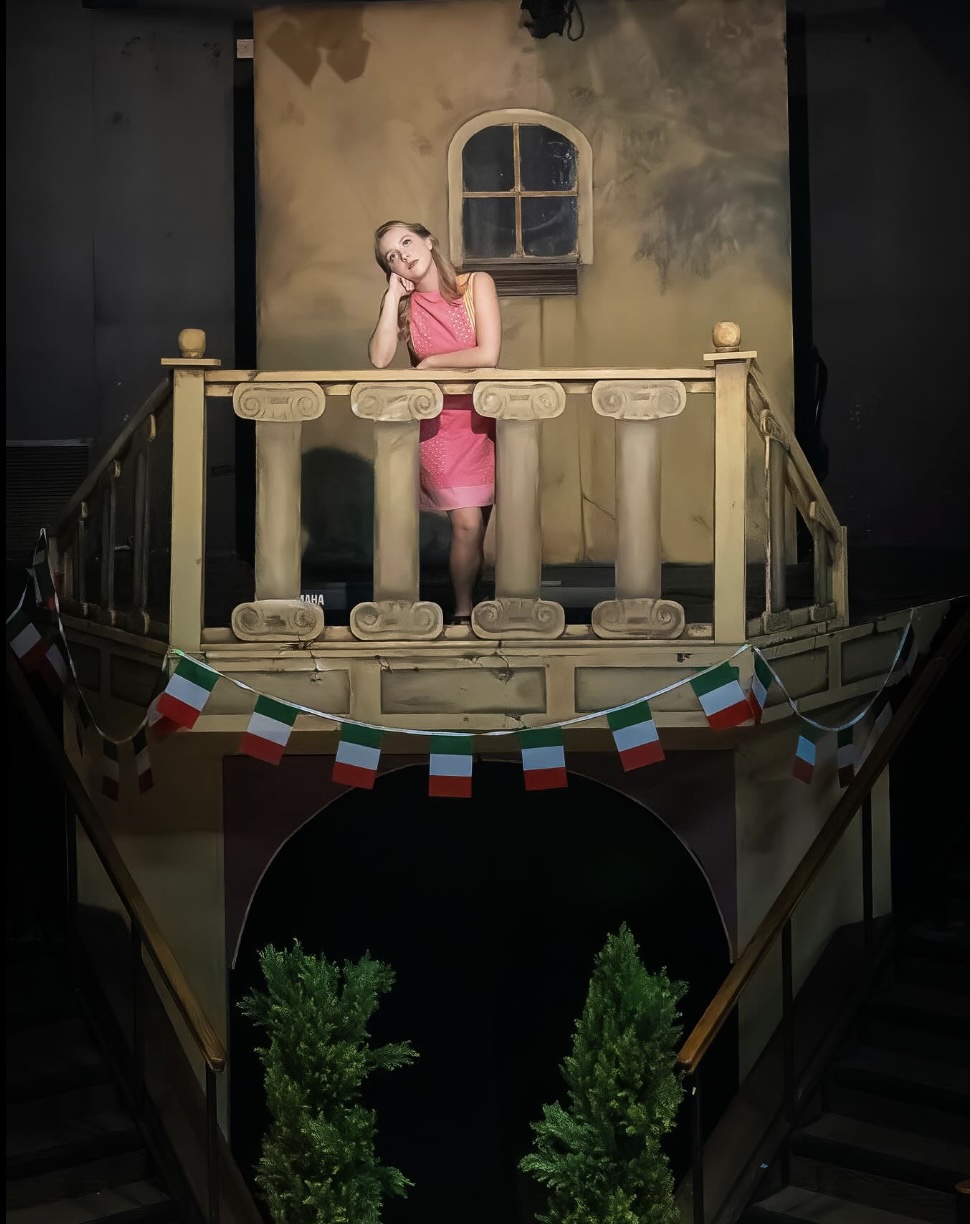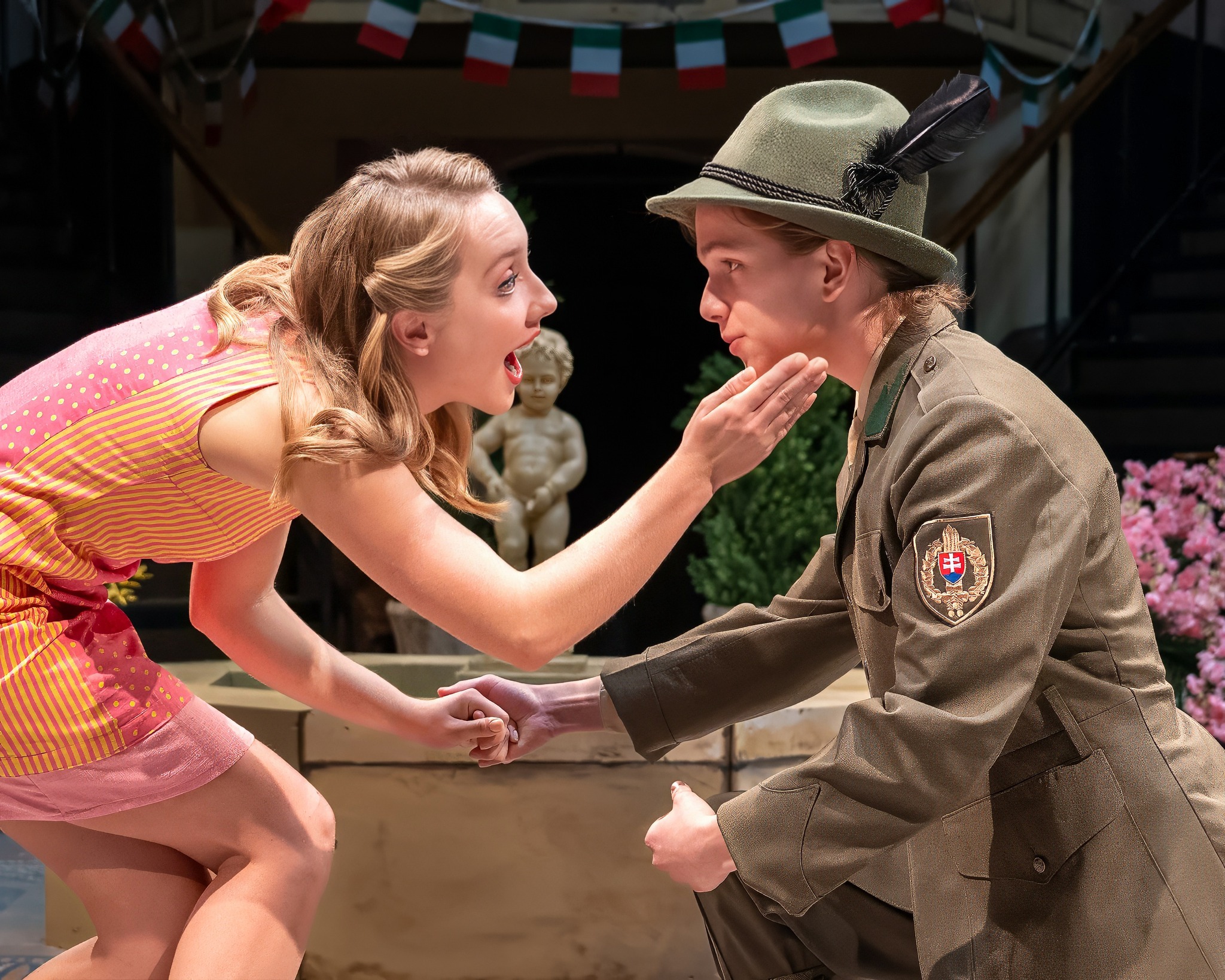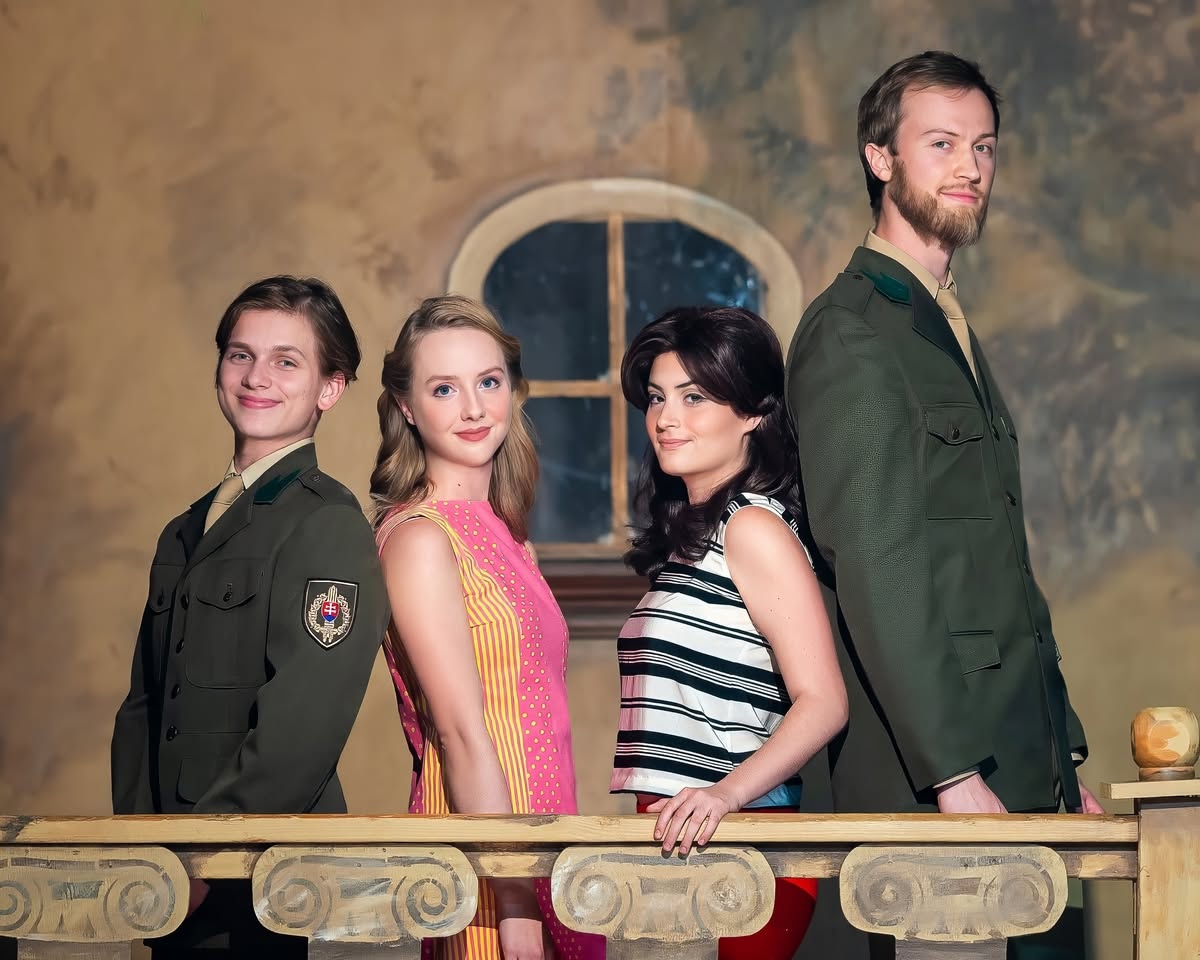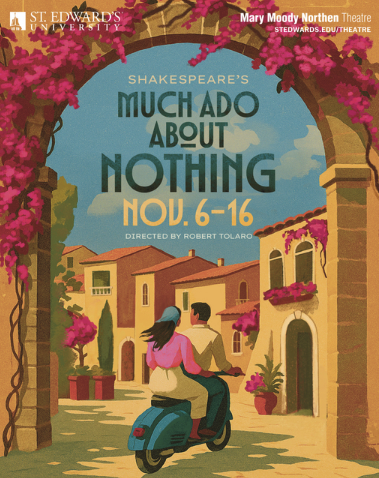Review: Much Ado About Nothing by Mary Moody Northen Theatre
by Brian Paul Scipione
“I was born to speak all mirth and no matter.”
 The distance between mirth and matter sometimes seems like a marathon worth of miles and sometimes seems like mere meters. Much Ado About Nothing is mostly mirth but it’s matter still… well matters. The plot of the play is atypical Shakespeare on a meta level. It contains all the most well-known Shakespearean elements: double entendres, puns, mistaken identity, forbidden love, shotgun weddings, inept authority figures, and, of course, revenge. Scholars love to divide the Bard’s canon into four acts: history, comedy, tragedy, and problem plays. The problem plays are problems for the critics and academics because they problematically don’t fit into any of the other three categories.
The distance between mirth and matter sometimes seems like a marathon worth of miles and sometimes seems like mere meters. Much Ado About Nothing is mostly mirth but it’s matter still… well matters. The plot of the play is atypical Shakespeare on a meta level. It contains all the most well-known Shakespearean elements: double entendres, puns, mistaken identity, forbidden love, shotgun weddings, inept authority figures, and, of course, revenge. Scholars love to divide the Bard’s canon into four acts: history, comedy, tragedy, and problem plays. The problem plays are problems for the critics and academics because they problematically don’t fit into any of the other three categories.
We all know that Shakespeare’s early career was dominated by histories, the Henry and Richard plays in particular. Then he drifted into his comedic phase with the hits Much Ado About Nothing, As You Like It, Twelfth Night, and The Merry Wives of Windsor. This was interspersed with the big tragedies (which gradually took over): Hamlet, Othello, King Lear, and Macbeth. His final act was dominated by problem plays: Measure for Measure, Pericles, Cymbeline, The Winter's Tale, and The Merchant of Venice. In essence, plays in which the happy endings can be questioned. Also—a quite necessary note—I am aware the exact dates of authorship of most of the Bard’s plays aren't agreed upon, but this timeline is largely supported by scholarship
How does this connect to Much Ado’s meta-aspects? Much Ado, just like the Shakespearean canon, reflects the different stages of a person’s life. Obligatory quote: “One man in his time plays many parts.” In our youth we are obsessed with the past and how we can overcome it. History is the foundation of education, and the learning of past skills and the help they offer us in the future is the foundation of public and private education. Adolescence arrives and everything seems amusing, and we want to rail against the teaching of history. Knowledge and overt self-confidence combine to create a person ready to take on the world. Then somewhere between the age of twenty and fifty, tragedy strikes. And strikes again, and again, and again. Youth's irreverent bold, laughter in the face of danger fades. As things calm down in the latter years of life, one is left a bit bewildered, not entirely sure what life is really about. Is it tragic? Comic? In our control? In the control of our elders? Of the next generation? It’s a seemingly unsolvable problem.
Much Ado About Nothing begins with the soldier Claudio (history) who becomes a lover (comedy) who gets his heart broken (tragedy) yet the day is saved against all odds, and he ends up getting married against his will (problem). To finish the obligatory quote: “Last scene of all, that ends this strange eventful history (…) is mere oblivion.” Or, in other words, much ado about nothing.
These are the reasons Shakespeare is so readily adaptable to many different contexts and time periods. The stories are not just universal; they contain multitudes. Robert Tolaro's interpretation for Mary Moody Northen Theatre is set in the swinging 1960’s, though there is little evidence of this except for the garish costumes. The accents the performers are using are so stereotypically Italian (think Mario from the video games) there's nothing of the cadences or the slow drawl of the free love era. The accents are so heavy, almost to the point of parody, that they are obviously used for comedic effects rather than authenticity.
The Mary Moody theatre's setup in the round caused issues with some actors whose voice projection was limited. They couldn’t be fully understood by those audience members they weren’t directly facing. The MMNT was also exceptionally cold venue and its cramped seating is on par with that of economy airlines. On the other hand, the configuration lends itself to incredible set designs with multiple balconies and an exquisite courtyard set design, complete with realistic flooring and a working fountain that readily recalled Mediterranean summers.

The success of any production of Much Ado always relies on the dueling leads of the haters-turned-lovers characters of Beatrice and Benedick, portrayed here by Tori Petrosino and Jackson Childs, both of whom attack their roles with gleeful relish. Childs allows the Benedict's clownish aspects to simmer in the first act and come to a raucous boil by the play’s midpoint. Petrosino is much more even-keeled delivering Beatrice's lines with razor-sharp agility throughout.
Jake McDonald plays Claudio the deceived, spurning bridegroom clear, loud, and articulate, perfectly embodying the soldier turned lover turned mourner in turn. His commander and compatriot Don Pedro (Davian Chavez) makes a striking leader with an admirable command of iambic pentameter that doesn’t fall into the sing-song rhythm that traps some of the other performers.

These four carry the story in a captivating fashion undashed by the chaotic hilarity of the law-keeping trio of Nomar De La Torre (Dogberry), Logan Carlson (Verges), and Aldo Hernadez Huerta (Seacoal). These three are having so much fun onstage that it's delightfully infectious without being over the top.
Xander Bauder as the scheming Don Juan is appropriately sinister. He is clearly destined to play an excellent Iago in the future. Ava Baker as Margaret the serving woman also deserves a special mention for injecting her role with tongue-in-cheek mirth at every possible moment.
“My mother cried, but then there was a star that danced and under that was I born.”
Mary Moody Northen Theatre’s Much Ado , embodying the spirit of both the Bard and the joy of live performance. It is not overtly reverential and makes the classic story its own.
This is Shakespeare as it is meant to be done: not perfectly but passionately.
Much Ado About Nothing
by William Shakespeare
Mary Moody Northen Theatre
November 06 - November 16, 2025
November 6 - 16, 2025
Mary Moody Northen Theatre, St. Edward's University, Austin
Adult tickets are $28, educator/seniors are $26, and student tickets are $15.
Tickets are available online or by calling the MMNT Box Office at 512-448-8484.
|
